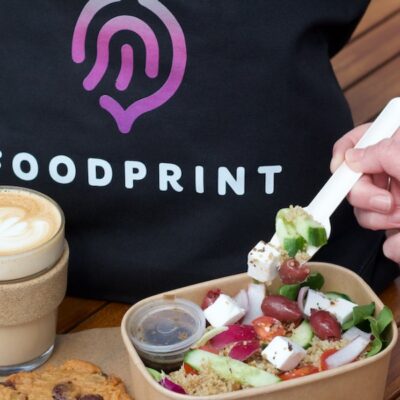It’s time to ditch the plastic
Stephen Walker explains why New Zealand businesses can no longer ignore packaging concerns. New Zealand is arguably a world leader when it comes to the environment. It has set an […]
Stephen Walker explains why New Zealand businesses can no longer ignore packaging concerns.
New Zealand is arguably a world leader when it comes to the environment. It has set an ambitious net-zero target for almost all greenhouse gas emissions by 2050 and has recently joined the ranks of countries who have declared a climate emergency (something our friends across the Tasman have yet to do).
It’s no surprise then that environmental concerns are now affecting everyday retail, with Kiwis more concerned about plastic packaging than ever before.
According to a recent Toluna survey, the growing concern for sustainability and eco-friendly packaging has resulted in a shift in consumer behaviour, with environmental concerns now driving many Kiwis’ purchasing decisions.
Greener spending
According to the data, for one in five Kiwi shoppers, sustainability now defines their choice of brands and products. And although the sentiment was strong across the board, it’s the younger generations who are more likely to vote with their wallet – one in four (26 percent) 18 to 34 year-olds said they’ve stopped using a brand in the last six months due to sustainability concerns. For those over 35 this number drops to only 18 percent; however that’s still nearly one in five shoppers over 35 dropping brands due to sustainability concerns.
It’s a significant trend across the board and businesses should take note.
When it comes to shopping sustainably, the most important issue for New Zealand shoppers is packaging, with the overwhelming majority (85 percent) stating it’s important to them that products are packaged sustainably. Respondents said they want packaging to be recyclable (80 percent) and made from sustainable materials (60 percent), as well as including biodegradable (63 percent) and compostable elements (55 percent).
When it comes to the products themselves, Kiwis say they want products which are made sustainably (56 percent) and from locally sourced ingredients (47 percent). Having ethically sourced ingredients (36 percent) and ethical employment practices (34 percent) are also important, but environmental concerns are clearly the priority.
What this means for business
Sustainability – particularly around packaging – is no longer an issue brands or retailers can afford to ignore. In fact, a massive 62 percent of respondents said sustainable packaging is more important to them now than it was two years ago, so we can only assume these concerns will continue to grow.
More than half (58 percent) of the respondents surveyed said they plan to make more sustainable life choices in 2021, which indicates even further shifts toward eco shopping preferences this year alone.
For businesses making unsustainable, single use products, now is the time to pivot or risk becoming obsolete. The research showed that a number of Kiwis have already stopped using some products altogether, such as take away cutlery (34 percent), takeaway coffee cups (30 percent), plastic cling wrap (21 percent), aerosol deodorants (21 percent) and plastic sandwich zip-lock bags (20 percent).
Not only are customers shying away from single use plastics, but laws are being introduced that will likely see a number of single use products banned within the next five years.
For retailers, packaging should also be a consideration when determining which products to stock. Already, more than half (54 percent) of New Zealand shoppers surveyed said they’re now looking beyond traditional retailers in order to find more sustainable products; choosing instead to shop online, at farmers markets, and boutique eco-stores.
By not having enough sustainable products on the shelves, traditional retailers risk losing market share, so will therefore need to rethink the brands they stock in order to cater for the growing number of eco-conscious shoppers.
Maintaining customer loyalty
We’re already seeing a number of brands innovating in the packaging space, from bread brands switching their plastic tags to cardboard ones, to plastic milk bottles being ditched for plant based materials. We know that customers want to see change, so even if those changes are small, it’s important for businesses to demonstrate they’re at least moving in the right direction.
We’re at a point in time where businesses are being celebrated for making changes. But in the not too distant future, sustainable packaging will be the norm and shoppers will expect nothing less. In order to maintain customer loyalty, businesses need to keep on top of this changing consumer sentiment and adjust their products and packaging accordingly.
With sustainability driving more shoppers’ purchasing decisions, brands who refuse to make the switch risk being left on the shelf.
Stephen Walker is Regional Director ANZ, for Toluna – a technology company that delivers real-time consumer insights at the speed of the on-demand economy.






